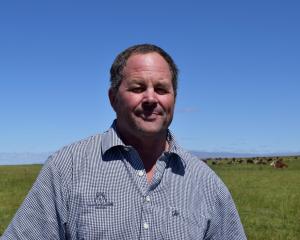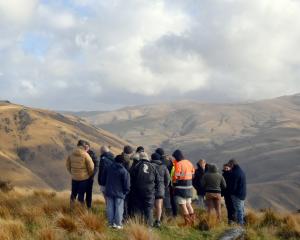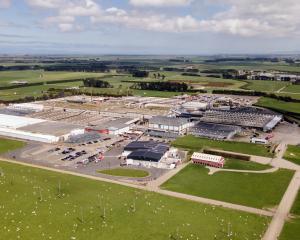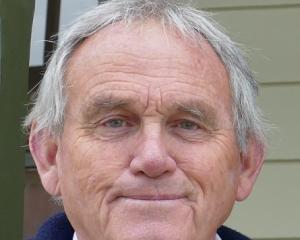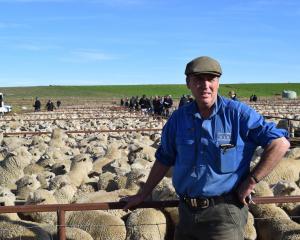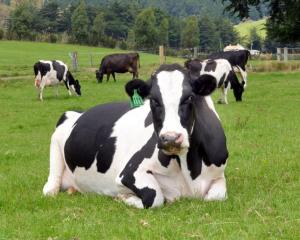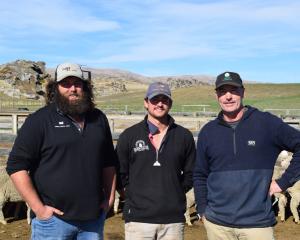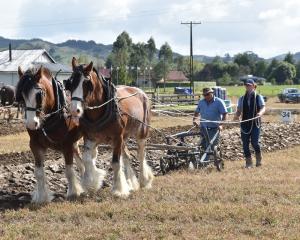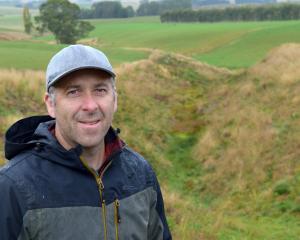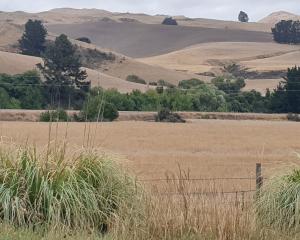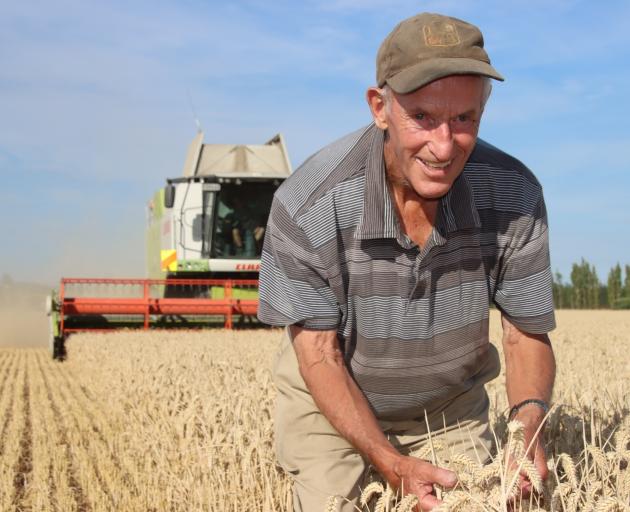
That man, Mike Solari, celebrated 50 years of farming at Otama with wife Margaret and friends and family recently.
After leaving an English agricultural college he started working on a farm his father bought on the Lleyn peninsula in northwest Wales, Mr Solari said. The land was close to the coast and covered in rushes, he said.
The plan was to grow early potatoes as the climate was mild and there were no late frosts.
"The grass grew for 11 months of the year."
There were also sheep on the farm and when it came to drenching time four men were needed to catch and hold the sheep which were in pens.
In his second winter on the farm Mr Solari decided to travel to New Zealand and "study sheep yards".
When some English friends knew he was coming to New Zealand they told him to visit Margaret Logan, who lived at Otama in Southland.
Miss Logan had stayed with them while she was on an exchange.
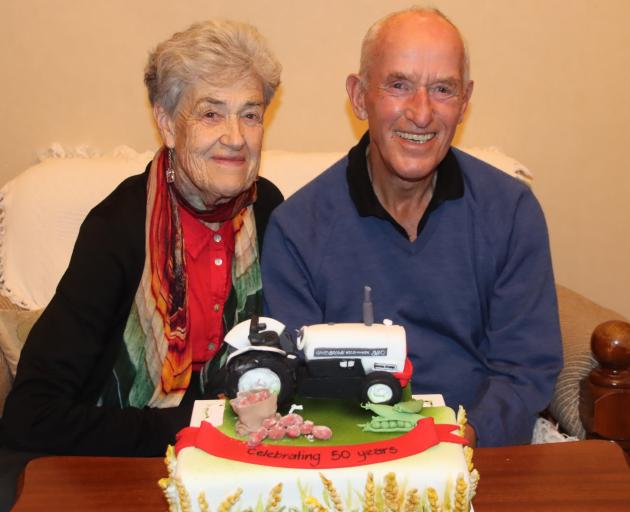
"I had a month here."
Mr Solari worked for some of that time on Bob Miller’s farm. Mr Miller was married to Merle, Margaret’s sister.
He went home and then returned to New Zealand in January 1968 and proposed to Margaret before going back to Wales.
"He had to go and plant his spuds," Mrs Solari said.
He came back four months later for the wedding and the couple returned to Wales to harvest the potatoes.
By 1974 the Welsh farm was a productive unit and Mr Solari was looking for a new challenge.
The couple had the opportunity to buy land at Otama and so they returned to New Zealand with two children, Liz, 4 and James, 2, new David Brown and Fiat tractors and a self-loading silage wagon.
"I just loved New Zealand. I loved driving tractors on these farms.
"I loved the people."
The river silt loam soil was also a lure which was "much better than we had been farming in Wales".
Later, daughters Karen and Amy were born.
During his farming career he enjoyed trying new ways of doing things, Mr Solari said.
When the opportunity came to buy one of the first power harrows imported to New Zealand he was quick to buy it.
Throughout the years he developed a nine-year rotation of crops to improve the fertility of the soil.
One of the crops he grew until recently was oil seed rape.
In the 1980s during the oil crisis he started mixing the oil with diesel.
"We tried it and found our tractors ran well on it."
Mrs Solari said at the time when farmers were looking to diversify the crops they grew, the couple had the opportunity to grow meadowfoam which was a small plant with white flowers.
"The oil that you squeeze out of it is very high pharmaceutical grade oil."
Mr Solari said after a wet spring when the children had helped with the lambing it was decided to lease the grazing of the grass paddocks to a neighbouring sheep farmer.
He liked having sheep on the farm but preferred working machinery.
One venture that did not work out so well was a plan to export potatoes to England.
He had grown 1.2ha of Red King potatoes to get seed potatoes in his first year at Otama and the next year grew 16 ha for market.
"Auckland loved Southland Red Kings."
The following year he grew 32ha.
While there were plenty of potatoes in New Zealand a drought in Europe meant potatoes were scarce so he and four others formed an export company to sell potatoes.
"Between the five of us we were going to do 5000 tonnes."
Nearly everything was in place for the deal to go ahead including the bags printed , a new grader bought and a quote from the shipping company but the farmers decided to cancel the deal at the last minute because the shipping costs were too high.
Even though 10 days later the shipping company offered a reduced price, it was too late as there was no time to mature the potatoes else they could have rotted on the voyage.
The glut of potatoes were sold in 63kg sacks for $2 each but 16ha were never harvested and were ploughed back under.
The bank manager was not impressed.
"I was told I could carry on farming as long as I didn’t grow potatoes."
All the potato growing equipment was sold except the planter.
"Gradually we got back into growing a few."
By this time the children were old enough for harvesting the potatoes to become a family activity.
Probably the highlight of the time farming at Otama was the success he enjoyed growing wheat.
"Southland for wheat has a long grain filling time."
In 2007 and 2010 Mr Solari broke the Guiness World Record for the yield of wheat he harvested.
In 2022 he broke his own record for the highest yield when he grew 15.7 tonnes a hectare but fell short of the world record.
"It’s been a team effort."
Breaking up the clay pan had enabled the wheat roots to grow down towards the underground water.
"If there’s no compaction the wheat roots can go down a metre and a half."
The couple would continue to live in the farm house but Mr Solari, 82, was retired.
"I’ve done my last harvest. It’s been pretty special over the years."


